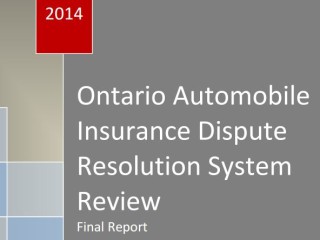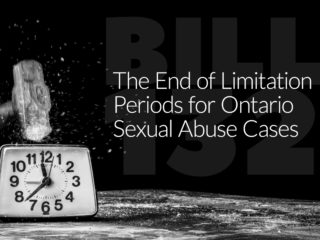This is a motion for summary judgment to dismiss the Plaintiffs’ action in a social host liability case.
Released February 17, 2017 | Full Decision [CanLII]
The action arises from a 19th birthday party that the Defendants held for their son, Graeme, in their home. The plaintiff, Dean, was seriously injured after he left the party impaired and on foot, then drove and ended up in a single motor vehicle accident. Dean lived down the street from Graeme so he walked to the party. The Defendants did not serve alcohol but they were aware that there would be drinking at the party, as it was a “bring your own booze” party. There were about 17 guests who were 18 or 19 years old. The Defendants were aware that several of the guests, including Dean, were underage. Dean was 18 years old at the time and had no recollection of the events that day. The Defendants admitted that they were hosting the party and that they supervised their guests throughout the party.
The claim is focused on social host liability. The Defendants took the position that the claim is bound to fail because the established law precludes a finding of duty of care, and, in any event, because the Defendants met the applicable standard of care.
With respect to the evidence on the motion, Matheson J. made some helpful observations:
- The parties attached copies of their own transcripts of examination for discovery as exhibits to their affidavit, which are not proper evidence;
- The parties’ affidavits attached witness statements and witness summaries (some unsigned and contained hearsay evidence) rather than sworn statements;
- Evidence of critical witnesses were not sworn;
- Although the transcript of the Plaintiff’s examination for discovery was attached as an exhibit to the Defendants’ affidavit, Rule 31.11, which allows the Defendants to read into evidence any part of an opposite party’s examination for discovery, applies only to trials;
- The parties’ evidence contains affidavits of a lawyers, but the affidavits contain certain facts about the events that the affiants have no personal knowledge of; and
- The Plaintiffs’ affiant also attached a document described as the “anticipated evidence” of a police office, attaching his/her handwritten notes made at the time of the accident.
Because neither side objected to the other side putting their evidence forward in the above-noted fashion, Matheson J. was prepared to overlook many of the technical problems with the record on the motion.
On close examination of the evidence presented by both sides, Matheson J. found that there were considerable differences and gaps in the evidence of the various witnesses, including how much Dean was showing the effects of his drinking and whether the Defendant father asked his daughter to keep an eye on Dean when he appeared drunk. Matheson J. concluded that there are genuine issues requiring a trial on the facts needed to reach a decision on the merits, and that it would not be fair and just to either side to evaluate the credibility of the defendants or draw inferences from the evidence. Matheson J. was not satisfied that a min-trial would be efficient in this case and even if it were, he would not order a mini-trial to determine integral factual issues where there is a jury notice.
On the law on social host liability, the Defendants submitted that they owed no duty of care because they did not serve alcohol, relying on Childs v. Desormeaux and Stevenson v. Clearview Riverside Resort. Matheson J. noted that in Childs, the injured person was a third-party rather than a party guest, and that the Supreme Court left the door open for other cases. Furthermore, the Supreme Court noted three situations that could lead to a positive duty to act, one of which was a paternalistic relationship of supervision and control. Matheson J. concluded that the Supreme Court’s ruling in Childs does not preclude finding a duty of care where there is a paternalistic relationship or where the injured party is a guest rather than a third-party. Matheson J. concluded that neither Childs nor Stevenson preclude a finding of a duty of care in this particular case.
As a result, the summary judgment motion was dismissed.
Read the full decision on CanLII











